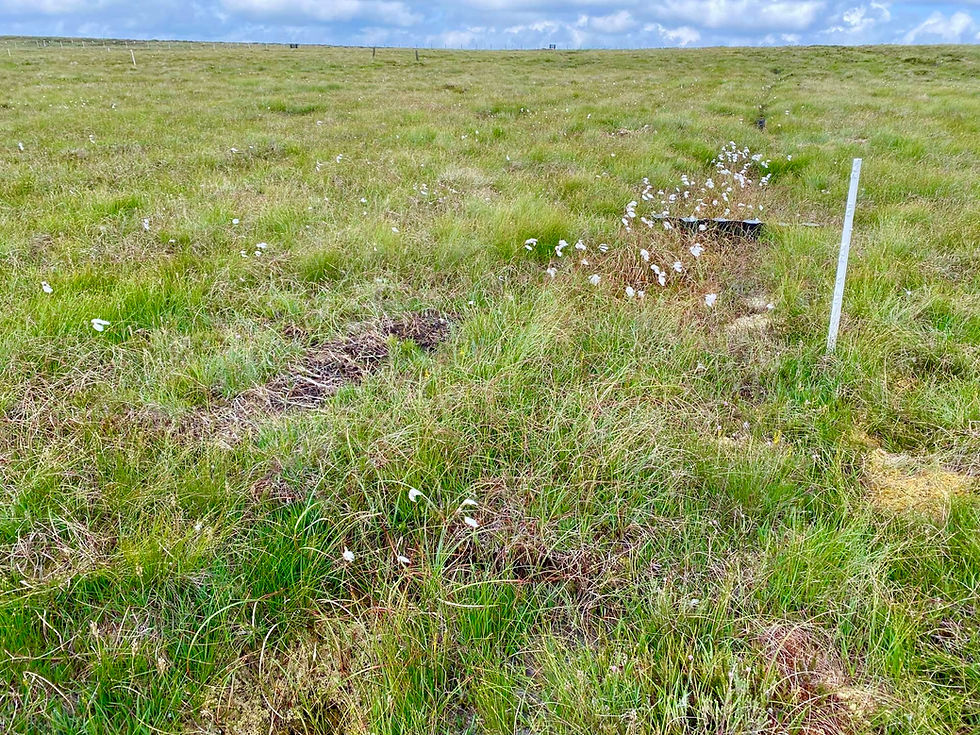Hill farming and wildlife conservation in focus at CAFRE Open Day
- Love Ballymena

- Aug 17, 2025
- 3 min read

CAFRE Hill Farm at Glenwherry, County Antrim
The College of Agriculture, Food and Rural Enterprise (CAFRE) and Teagasc are inviting the public to an Upland Open Day at CAFRE’s Hill Farm Centre, Glenwherry, on Wednesday 3 September.
The 960-hectare farm, located within a Special Protection Area for Hen Harrier and Merlin, has been at the heart of biodiversity and habitat management work since the establishment of the Glenwherry Hill Regeneration Partnership (GHRP) in 2009.
The site is home to a wide variety of bird and mammal species, with ongoing research and land management programmes supporting both wildlife and sustainable farming.
Nicola Warden, Senior Biodiversity Technologist, highlighted the importance of habitat restoration:
“Across the CAFRE Hill Farm there are a range of ground nesting bird species that nest on the site. These species include Red Grouse, Curlew, Lapwing and Snipe. One aim of the hill farm is to create and maintain habitats suitable for these birds to nest in.”
A key focus has been the removal of conifer plantations to support nesting birds. Nicola explained:
“Research shows that the ground nesting birds mentioned above won’t nest within 200-700 metres of a conifer plantation for fear of predation.
“Since the establishment of GHRP, the group has proposed the removal of a 68 hectare conifer plantation at Glenwherry to allow a further 300 hectares of suitable habitat to become available to ground nesting birds.
“During the tours of the hill farm, you will hear about the Forest to Bog restoration techniques and see how the site has revegetated since the trees were removed in winter 2019.”
Another major project is peatland restoration. On a 12-hectare site, open drains have been blocked to help restore the natural water table. Nicola said:
“To bring the habitat back to peat accumulating condition, the underlying peatland hydrology has to be addressed. Through implementing peatland restoration techniques, CAFRE has been able to bring the water table that is beneath the surface to within the range which overtime will accumulate further peat.
“During the Hill Farm Open Day, you will hear more about the work that has been undertaken with the aim of fixing the hydrology to benefit the habitat but also to reduce the carbon emissions coming from the degraded bog.”
The farm also manages a 72-hectare breeding wader bird area, with support from RSPB, where pre-nesting management ensures the right conditions for species such as Curlew, Lapwing and Snipe. Innovative farming practices, including the use of virtual fencing technology, have allowed cattle to graze across the site, preparing habitats without mechanical intervention.
Nicola added:
“Pre nesting management is crucial to ensuring the site is in the right condition to encourage the birds to nest. Working closely with RSPB advisers, CAFRE have been managing the site by outwintering a quarter of the suckler cow herd.
“During the past four winters, small batches of the cows have been grazed across the site using virtual fencing technology. The cows have been able to get the habitat into the correct condition without having to use mechanical flails.”
Despite the ecological focus, CAFRE has successfully balanced conservation with farming. The livestock enterprises remain a core part of Glenwherry’s operations.
Nicola concluded:
“Join us on Wednesday 3 September to hear more about the ongoing work at the farm and how the cattle and sheep enterprises are a major part of habitat management.
“Please visit www.cafre.ac.uk/events/cafre-teagasc-hill-farm-open-day to book your place on a tour.”








